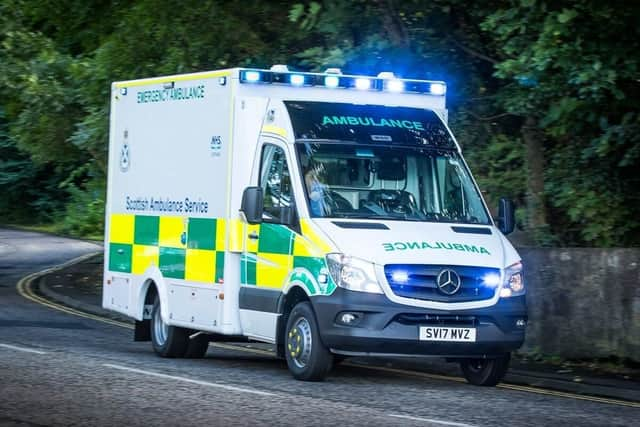NHS strikes: English ambulance strikes give a glimpse of what awaits Scotland
The disruption to England and Wales’s ambulance service gives us an insight into what could be in store for Scotland, if GMB members working within the Scottish Ambulance Service (SAS) decide to strike in coming weeks.
The union – 1,700 workers in the ambulance service – has a mandate for strike action, and last month voted to reject the Scottish Government’s latest pay offer to NHS staff, which represented a 7.5 per cent pay increase.
Advertisement
Hide AdAdvertisement
Hide AdHowever, judging disruption of an NHS strike on the day it happens can prove difficult, and the real disruption only becomes apparent in succeeding days.


For a start, demand for services is usually massively down, as happened in England during the last strike on December 21, when calls for ambulance services were a third below normal. This is largely due to patients’ awareness of the strikes and consequently avoiding ambulance services as best they can.
Anecdotally, the same was repeated again for the latest strikes. The real picture will begin to emerge in coming days, as these patients then present at emergency rooms, possibly with worsened conditions due to the delay in accessing treatment. Recently, the Royal College of Emergency Medicine estimated around 50 extra people are dying each week in Scotland due to delays in emergency treatment.
Secondly, the British Army has been operating ambulances. The army has provided ambulance services in the UK before, most notably during the 1989-90 ambulance strikes, the 1978-79 ‘Winter of Discontent’, and during the coronavirus pandemic.
Finally, ambulance workers are still reporting for shifts, albeit in a reduced capacity. Previously, GMB Scotland has said “there would be some semblance of life and limb cover" during the strike action, but regardless the strike would have “profound consequences for service delivery”.
As for the possibility of third-sector organisations filling in service gaps, national first aid and healthcare charity St John Ambulance said it would not be providing any additional support outside its planned and contracted activity during the strikes in England and Wales.
Comments
Want to join the conversation? Please or to comment on this article.